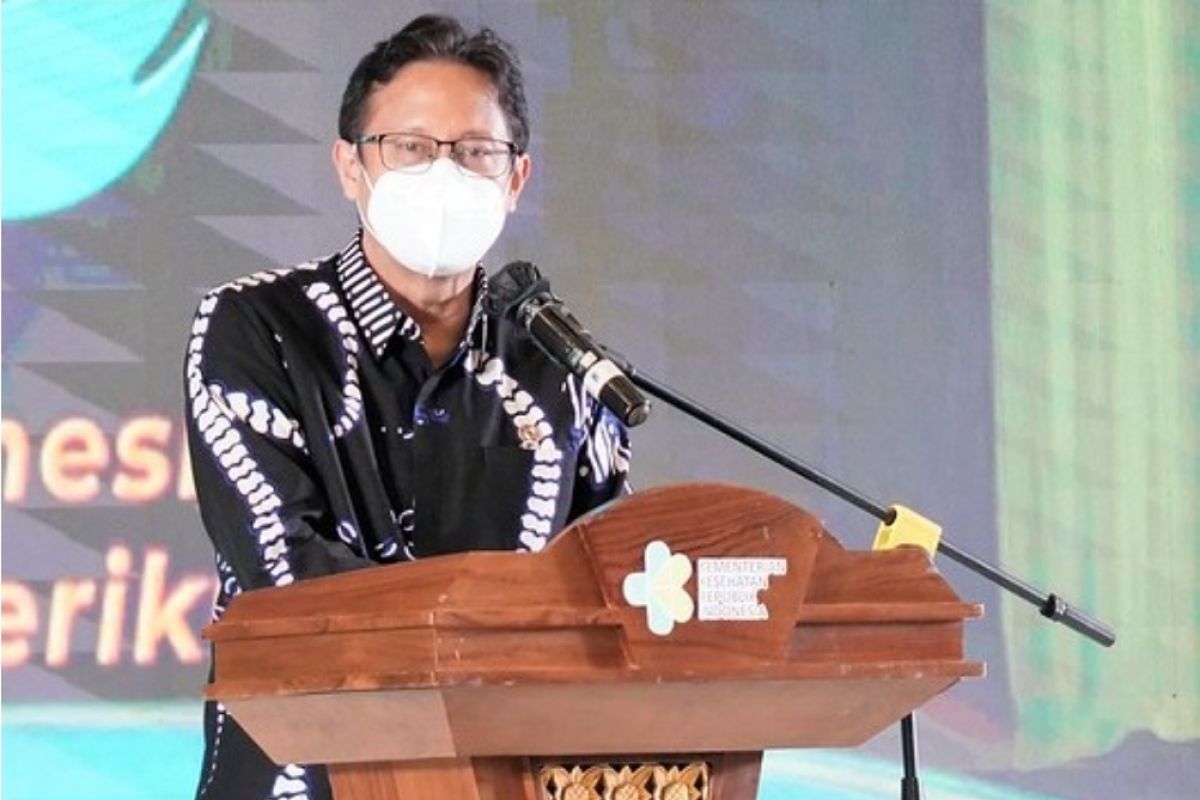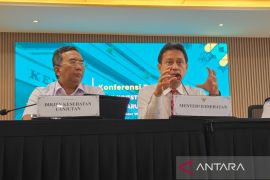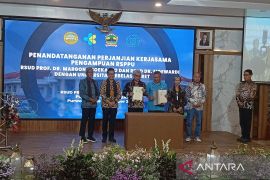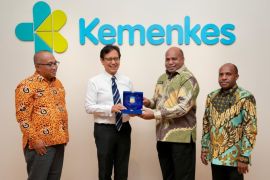"We want to make sure that at least 50 percent of all vaccines, drugs, and medical devices can be produced domestically. Earlier, we have seen cooperation for imported medicinal raw materials, and we have been encouraged to buy domestic raw materials," Sadikin noted at the opening of the 58th National Health Day (HKN) Exhibition at ICE BSD, South Tangerang, Banten, Thursday.
The minister pressed for the need for a strong commitment from the government and the industry sector to realize the target. To this end, his ministry will provide incentives for the industry to be able to produce vaccines and medical devices in the country.
In 2022, the Ministry of Health has budgeted spending on medical devices and medicines at around Rp38 trillion, out of which around Rp17 trillion was allocated for spending on drugs, vaccines, and medical devices produced in the country, he remarked.
He noted that in the coming year, there will be more purchases from the Ministry of Health for domestic products.
Another commitment is marked by the ability of the Indonesian industry to produce vaccines using mRNA technology. Sadikin said that in future, this technology will be useful to increase Indonesia's readiness in responding to the upcoming pandemic.
"Thus, in future, the manufacturing of vaccines, which earlier took years, can be produced in 100 days, can enter clinical trials, and can be achieved with the capabilities that exist in our country," the minister affirmed.
Earlier, his side had targeted six pillars of health transformation in the form of the transformation of primary services through the revitalization of 300 thousand integrated health service (posyandu) and 10 thousand community health center (puskesmas) throughout Indonesia that will be focused on preventive and promotive efforts to health screening.
In the transformation of the referral service pillar, Sadikin ensured that all hospitals in 514 districts and cities had sufficient medical equipment to treat the four main ailments: heart disease, stroke, cancer, and kidney disease.
For instance, fulfilling the provision of a cath lab that functioned not only to treat heart disease but also stroke.
The next one is transformation in the health financing system through transparency of health costs to BPJS Health's collaboration with private insurance.
The fifth transformation is the health human resources system through fulfilling the requirement in terms of the number and quality of doctors and specialists as well as easy access to education. One of the approaches is the increase in the number of specialist doctor scholarships, from 300 to 1,500 this year.
The last one is the transformation of health technology through the one health program. By December 2023, some 80-85 percent of all health facilities are expected to be connected to the Health Ministry's One Health system.
Related news: Association suggests BPOM to mandate industry to self-inspect products
Related news: Ministry supplies 10 drug molecules to boost domestic production
Related news: Ministry allocates Rp394.5 billion for building pharmacy sufficiency
Translator: Andi Firdaus, Resinta S
Editor: Sri Haryati
Copyright © ANTARA 2022












